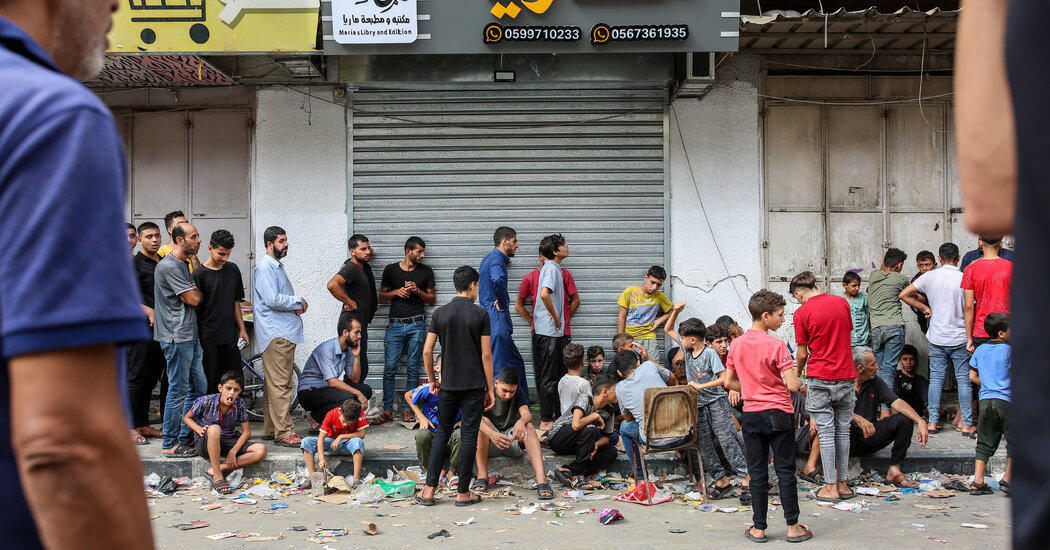For 34 hours, the vast majority of the more than two million Palestinians who live in Gaza had no way to reach the outside world, or one another.
They had no way to know whether their loves ones were alive or dead. Emergency phone lines stopped ringing. Desperate paramedics tried to save people by driving toward the sound of explosions. Wounded people were left to die in the street.
On Friday at sunset, three weeks into Israel’s bombing campaign in Gaza — and as Palestinians braced themselves for an impending Israeli ground invasion — the weak phone and internet service that had allowed some semblance of life to continue inside the blockaded enclave was suddenly severed. Two American officials said the United States believed Israel was responsible for the communications loss, speaking on the condition of anonymity because of the sensitivity of the issue.
Panic rippled through the territory.
“I felt that I had become blind and deaf, unable to see or hear,” Fathi Sabbah, a journalist based in Gaza, wrote on his Facebook profile on Sunday, after phone and internet service partly returned.
Since gunmen from Hamas — the armed group that rules Gaza — burst through the border fence on Oct. 7, killing around 1,400 people in southern Israel and taking more than 220 more hostage, according to Israeli authorities, Gazans say they have been living inside of a nightmare. In response to the attacks, the Israeli military declared a siege of the densely populated territory, cutting off electricity, water and medical supplies as it rained down a relentless barrage of aerial and artillery bombardments.
On Sunday, the Israeli military said that it had expanded a ground incursion overnight, and warned with increasing “urgency” that Palestinian civilians should move to the southern part of the coastal strip — although airstrikes have continued to kill people there, too.
The Israeli military also said that it was conducting airstrikes in Lebanon after at least 16 rockets were launched from there into Israeli territory. In Gaza, 47 aid trucks crossed the border from Egypt carrying water, food and medicine — the most in a single day since trucks were first allowed in on Oct. 21, but still insufficient compared to the levels of assistance that aid organizations say are needed.


